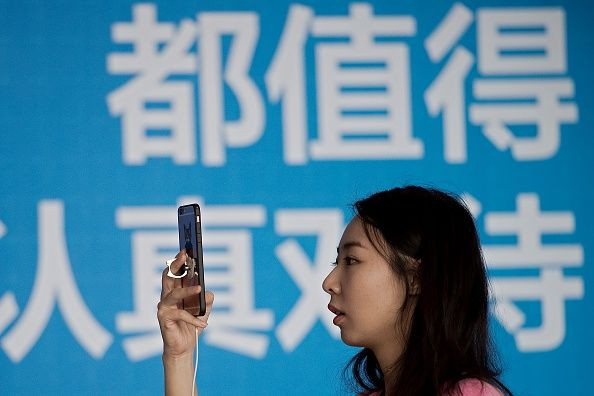Apple Inc. Facing iPhone Sales Ban In China After Infringing Design Copyright

UPDATE: 8:15 p.m. EDT -- Sales of Apple's iPhone 6 and 6 Plus were continuing in China on Friday, as the U.S. tech company disclosed it had obtained a stay on a May 19 administrative order to halt sales of the smartphones, Reuters reported. The stay is pending results of a scheduled review of the dispute by an intellecual property court in Beijing, Apple said in a statement.
Original story:
Apple is facing the prospect of having to stop selling its iPhone 6 and iPhone 6 Plus in China after an intellectual property authority ruled that they infringed the design patents of a little-known Chinese smartphone company, adding to the mounting woes the U.S. tech giant is facing in the Far East.
The Beijing Intellectual Property Office has ruled that the iPhone 6 and iPhone 6 Plus, which were launched almost two years ago, violated the design patents relating to the 100C smartphone, which is manufactured by Shenzhen Baili. While the ruling covers only Beijing, it could be used by lawmakers throughout China to come to similar conclusions.
The sales ban may not come into force, however, as Apple has the right to appeal the decision made by the authority, and any potential ban could be paused during the appeal process.
The Wall Street Journal reports that some retailers in Beijing have stopped selling the iPhone 6 and iPhone 6 Plus anyway, replacing them with the newer iPhone 6s and iPhone 6s Plus. The phones are, however, still listed for sale on Apple's Chinese online store.
With the company expected to launch new smartphones in August, the iPhone 6 and iPhone 6 Plus may soon be removed from Apple's lineup of smartphones all together but the fact that Chinese authorities are willing to take the side of a local manufacturer will be worrying for the company.
In the last two years China has become one of Apple's most important growth markets, helping drive record iPhone 6 sales following its launch in September 2014. However, Apple's most recent results show that even in China the smartphone market is slowing; last April the company posted its first quarterly revenue decline in 13 years.
The patent ruling is the latest regulatory setback Apple is facing in the country. Last month Apple lost a court battle for the use of the "iPhone" trademark on leather goods in China when a Beijing court ruled in favor of a local firm. And in April, Apple saw its iTunes Movies and iBooks services blocked in China just six months after their launch — without any reason being given.
The setbacks despite as Apple seeks to build relationships within China with Tim Cook recently visiting the country as part of an Asian tour. The company also announced a $1 billion investment in ride-hailing company Didi Chuxing, which dominates the market in China despite Uber's presence.
The ruling in Beijing comes after years of accusations against Chinese companies of copying Apple's designs. Xiaomi, now one of the world's biggest smartphone makers, was consistently being accused of copying Apple's ideas and was dubbed the "Apple of the East." Xiaomi's CEO Lei Jun was known for dressing in an identical manner to former Apple CEO Steve Jobs. Even the company's marketing material for its smartphones and tablet mimicked the U.S. company.
© Copyright IBTimes 2024. All rights reserved.






















